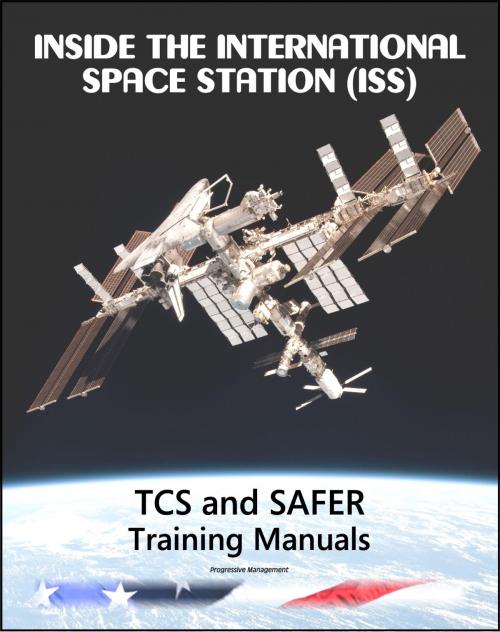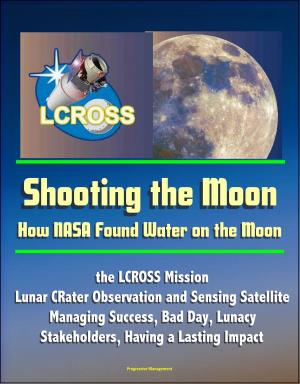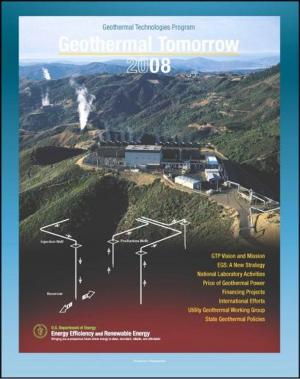Inside the International Space Station (ISS): NASA Thermal Control System (TCS) and Simplified Aid for EVA Rescue (SAFER) Astronaut Training Manuals
Nonfiction, Science & Nature, Science, Physics, Astronomy| Author: | Progressive Management | ISBN: | 9781466002548 |
| Publisher: | Progressive Management | Publication: | December 19, 2011 |
| Imprint: | Smashwords Edition | Language: | English |
| Author: | Progressive Management |
| ISBN: | 9781466002548 |
| Publisher: | Progressive Management |
| Publication: | December 19, 2011 |
| Imprint: | Smashwords Edition |
| Language: | English |
Learn about the International Space Station (ISS) from the textbooks used by the astronauts! These astronaut and flight controller training manuals, produced by the Mission Operations Directorate (Space Flight Training Division branch) at NASA's Johnson Space Center, represent a major part of the formal flight crew training process. The manuals and workbooks are extremely detailed and comprehensive, and are designed for self-study. A full listing of all acronyms and abbreviations used in the text is included. They provide a superb way to learn about Station systems, hardware, and operational procedures. Special emphasis on crew interaction with the displays, controls, and hardware is included.
These training manuals cover the ISS thermal control system (TCS) and the Simplified Aid for EVA Rescue (SAFER). TCS overview: Throughout the life of the Space Station, experiments, equipment, and crewmembers inside the modules are generating heat that must be removed. Outside the modules, experiments and equipment must be protected from the environment in low Earth orbit. The purpose of the Thermal Control System (TCS) is to maintain Space Station equipment and pay loads within their required temperature ranges. The components and general operational capabilities of the TCS are presented, as well as the various interfaces with other Space Station systems.
The Simplified Aid for EVA Rescue (SAFER) is a small, self-contained, propulsive backpack system used to provide free-flying mobility for an extravehicular (EV) crewmember. SAFER is a single-string system for contingency use only; therefore, it does not have system redundancy. SAFER is designed to be used as a self-rescue device for a separated EV crewmember in situations when the Orbiter is docked to a large structure such as the Russian Mir Space Station or the International Space Station (ISS), and therefore cannot provide rescue capability. For these types of EVAs, SAFER will be worn by every EV crewmember during all EVA operations. SAFER is a Johnson Space Center (JSC) project developed and built for use on ISS. A successful on-orbit SAFER Detailed Test Objective (DTO) was conducted on STS-64. This untethered DTO flight test demonstrated SAFER's operational capabilities and collected performance data to augment the design and development of the final SAFER.
Learn about the International Space Station (ISS) from the textbooks used by the astronauts! These astronaut and flight controller training manuals, produced by the Mission Operations Directorate (Space Flight Training Division branch) at NASA's Johnson Space Center, represent a major part of the formal flight crew training process. The manuals and workbooks are extremely detailed and comprehensive, and are designed for self-study. A full listing of all acronyms and abbreviations used in the text is included. They provide a superb way to learn about Station systems, hardware, and operational procedures. Special emphasis on crew interaction with the displays, controls, and hardware is included.
These training manuals cover the ISS thermal control system (TCS) and the Simplified Aid for EVA Rescue (SAFER). TCS overview: Throughout the life of the Space Station, experiments, equipment, and crewmembers inside the modules are generating heat that must be removed. Outside the modules, experiments and equipment must be protected from the environment in low Earth orbit. The purpose of the Thermal Control System (TCS) is to maintain Space Station equipment and pay loads within their required temperature ranges. The components and general operational capabilities of the TCS are presented, as well as the various interfaces with other Space Station systems.
The Simplified Aid for EVA Rescue (SAFER) is a small, self-contained, propulsive backpack system used to provide free-flying mobility for an extravehicular (EV) crewmember. SAFER is a single-string system for contingency use only; therefore, it does not have system redundancy. SAFER is designed to be used as a self-rescue device for a separated EV crewmember in situations when the Orbiter is docked to a large structure such as the Russian Mir Space Station or the International Space Station (ISS), and therefore cannot provide rescue capability. For these types of EVAs, SAFER will be worn by every EV crewmember during all EVA operations. SAFER is a Johnson Space Center (JSC) project developed and built for use on ISS. A successful on-orbit SAFER Detailed Test Objective (DTO) was conducted on STS-64. This untethered DTO flight test demonstrated SAFER's operational capabilities and collected performance data to augment the design and development of the final SAFER.















